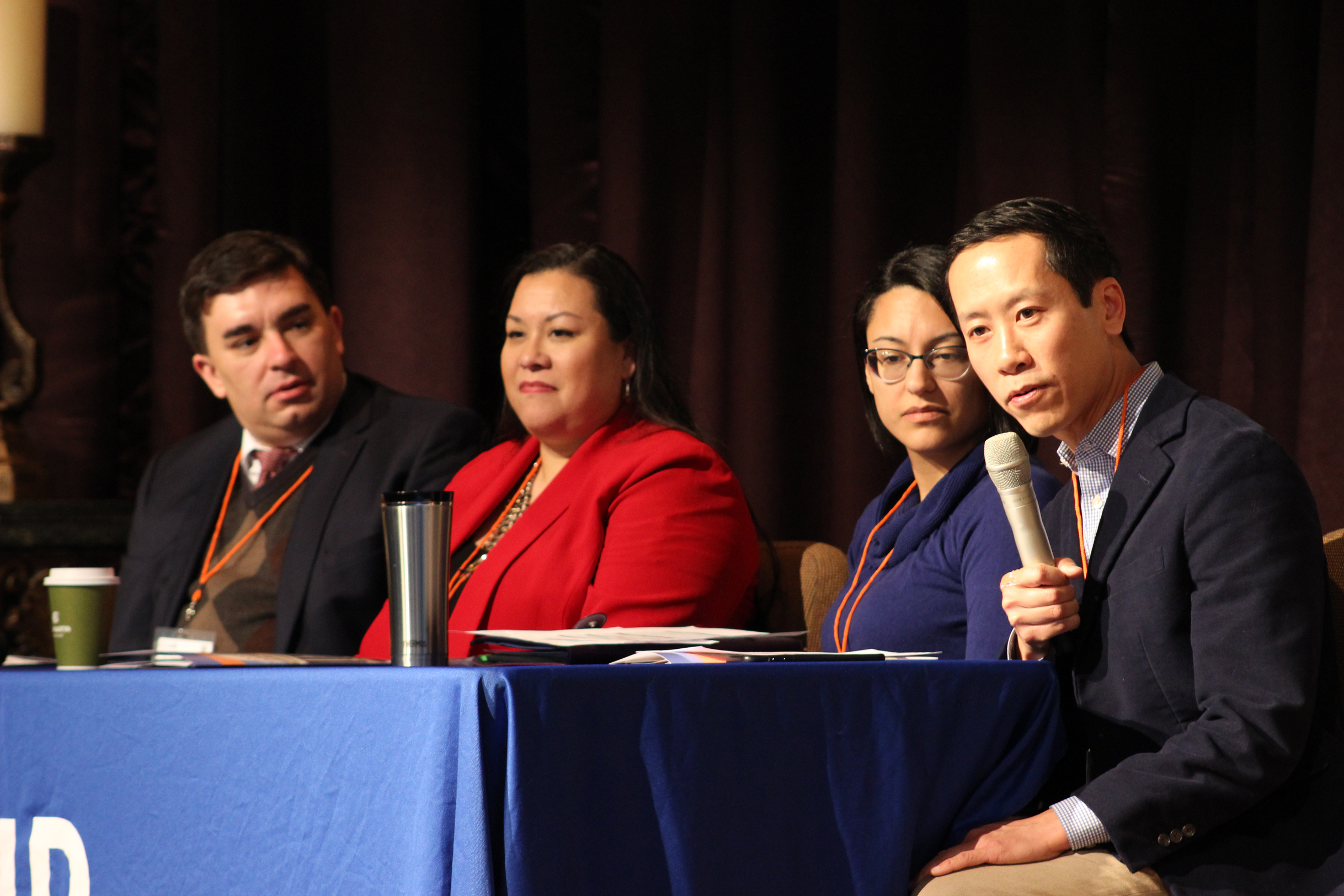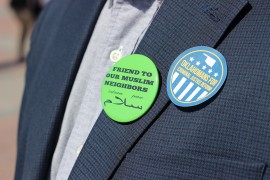Third Annual Muslim Day at the Capitol

 The Council for American-Islamic Relations of Oklahoma hosted its third annual Muslim Day Thursday, seeking to inform residents about the state of education, hate crimes, and community involvement.
The Council for American-Islamic Relations of Oklahoma hosted its third annual Muslim Day Thursday, seeking to inform residents about the state of education, hate crimes, and community involvement.
Adam Soltani, executive director of CAIR-Oklahoma said the event has meant a lot for the people present and the community every year.
“In Oklahoma, since 2010, Muslims have been the target of anti-Muslim legislation and hateful, bigoted attacks from some of our elected officials,” he said. “This year in particular, we are not only concerned about engaging with our elected leaders and being educated on the issues. What we’re really trying to accomplish this year is to push people and encourage them to be advocates.”
Soltani said he wants people to advocate for the right to exist. “We need to fight for the right to be accepted as Muslims in America, which sometimes can be a challenge, but that’s what we hope to accomplish this year.”
There is a clear gap between legislators and the people that Soltani said should not exist. “Our legislators are elected to lead us and we should feel comfortable approaching them, but the reality is a lot of people don’t. Our goal is to get people over their fear and their apprehension and to really get them engaging with their elected leaders and get comfortable with that,” he said.
The event’s keynote speaker, state Representative Scott Inman, D-Oklahoma City, said he wanted to talk about ways for the Muslim community to get involved in local government.
“My basic message today is while legislators at the Capitol try to divide us along religious, cultural or other political lines, at the end of the day the common denominator is we’re all Oklahomans,” he said. “Regardless of how we pray or how we think, we’re all Oklahomans and everybody needs to be treated that way.”
The event this year held a series of panels focused around the legislative agenda for the year. It included issues on the budget crisis, public education, religious freedom, the First Amendment, and others.
Panelists that can speak to those issues included current or formerly elected officials, reporters, law professors, and community organizations like the American Civil Liberties Union of Oklahoma.
Panelist and Legal Director for the ACLU of Oklahoma, Brady Henderson, said the union has had a long standing relationship with CAIR.
“We do court cases together or we’ll have similar issues on behalf of marginalized communities. They have our phone number; we have theirs,” he said. “A lot of different organizations in the civil rights community work together. We will very often reach out to allies for things like that, both for expertise and for different perspective.”
CAIR has been involved in the Oklahoma community for more than ten years. Government Affairs Director Anna Facci has held the position for only two months, but has been involved with the council for years as Apparitions and Events Coordinator.
“The results of the 2016 election influenced what we wanted to talk about at the state and at the federal level,” she said. Her focus this year was a broader look into the legislative agenda that still impacts Muslims like education, incarceration of women, or the budget crisis. She said these are issues that are deeply important to the community, as Muslims, and Oklahomans.
After Inman’s speech, the group relocated to the State Capitol where the rest of the event was taking place. Rows of supporters applauded and cheered people walking towards the main entrance of the building while a handful of people held signs in protest. One sign read “Every Real Muslim Is A Jihadist.”
The protesters declined when approached for comment.
Anastasia Pittman, D-Oklahoma City, embraced people and shook hands. She raised her voice in the middle of the rows and said “Welcome to your Capitol. You are all welcome here.”